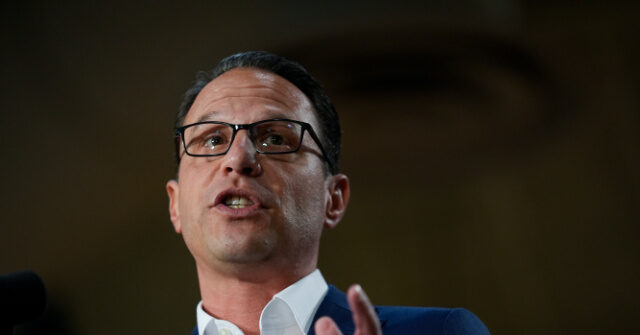In the aftermath of the 2024 presidential election, Pennsylvania’s Democratic Governor Josh Shapiro made a profound statement reflecting the outcome of the election and the political environment of the state. Emphasizing the importance of respecting the will of the people, Shapiro acknowledged Pennsylvania’s historical significance as the “birthplace of American democracy.” He recognized the decision made by voters who elected Donald Trump as the next President of the United States, alongside other Republican and Democratic candidates in various state and federal offices. His comments underline a commitment to unify a divided electorate and work collaboratively across party lines to address the needs of all citizens, illustrating a path forward amid political polarization.
Shapiro’s remarks unveil his intentions to prioritize governance and the collective well-being of Pennsylvania residents. He highlighted the crucial responsibility that comes with serving in public office—putting the people first. Asserting his dedication to making life better for Pennsylvanians, he pledged to focus on key issues like job creation, economic opportunity, education, and public safety. His belief in the potential for unity amidst division reflects a strategic vision that emphasizes collaboration and compromise as essential tools for effective governance, seeking to “get stuff done” for various communities throughout the state.
Additionally, Shapiro reaffirmed his commitment to upholding democracy and fundamental rights, reminiscent of the values championed by William Penn. His resolve to create an inclusive environment for all Pennsylvanians underlines a broader message of resilience in democratic principles, asserting that individual freedoms and opportunities for success are paramount. This approach seeks not only to validate the electoral process but also to foster a political culture inclined toward understanding and cooperation, irrespective of party affiliation. The governor’s statements aim to balance respect for electoral outcomes with a proactive agenda for equity and justice in governance.
The election results indicated a significant shift in the political landscape, with Trump commanding 50.5% of the vote, securing 19 electoral votes from Pennsylvania. A narrow margin of roughly 134,000 votes separated him from Vice President Kamala Harris, who garnered 48.5%. These figures underscore a contentious electoral atmosphere, as the nation reflects on the fierce competition between candidates. Amidst this backdrop, Shapiro congratulated all candidates who earned the opportunity to serve, portraying an image of bipartisan respect that may provide a foundation for future collaboration within the state government.
The election did not solely bring to light the presidential contest; it also led to pivotal changes in congressional representation. One notable shift occurred in Pennsylvania’s Eighth Congressional District, where Republican Rob Bresnahan defeated long-time Democratic Representative Matt Cartwright. Bresnahan’s victory was particularly significant, as he highlighted the importance of winning critical races to establish a Republican majority in the House of Representatives. His success illustrated the appetite for change among the electorate, particularly in historically battleground areas. It signals a possible reconfiguration of electoral dynamics and highlights how candidate quality and local issues can influence voter turnout and party support.
As Pennsylvania awaits the finalization of other races, including the Senate contest between Republican Dave McCormick and incumbent Democrat Bob Casey, the implications of these results extend beyond individual candidates. They reflect broader national trends and sentiment within the electorate. As election results continue to unfold, the emphasis on governance, respect for voters, and the need for bipartisan efforts will be essential themes for political leaders moving forward. Whether it is through collaboration or a focus on core issues, the path ahead for Pennsylvania post-election will hinge on the capacity for leaders like Shapiro to navigate an increasingly polarized political landscape while delivering on the promises made to their constituents.

